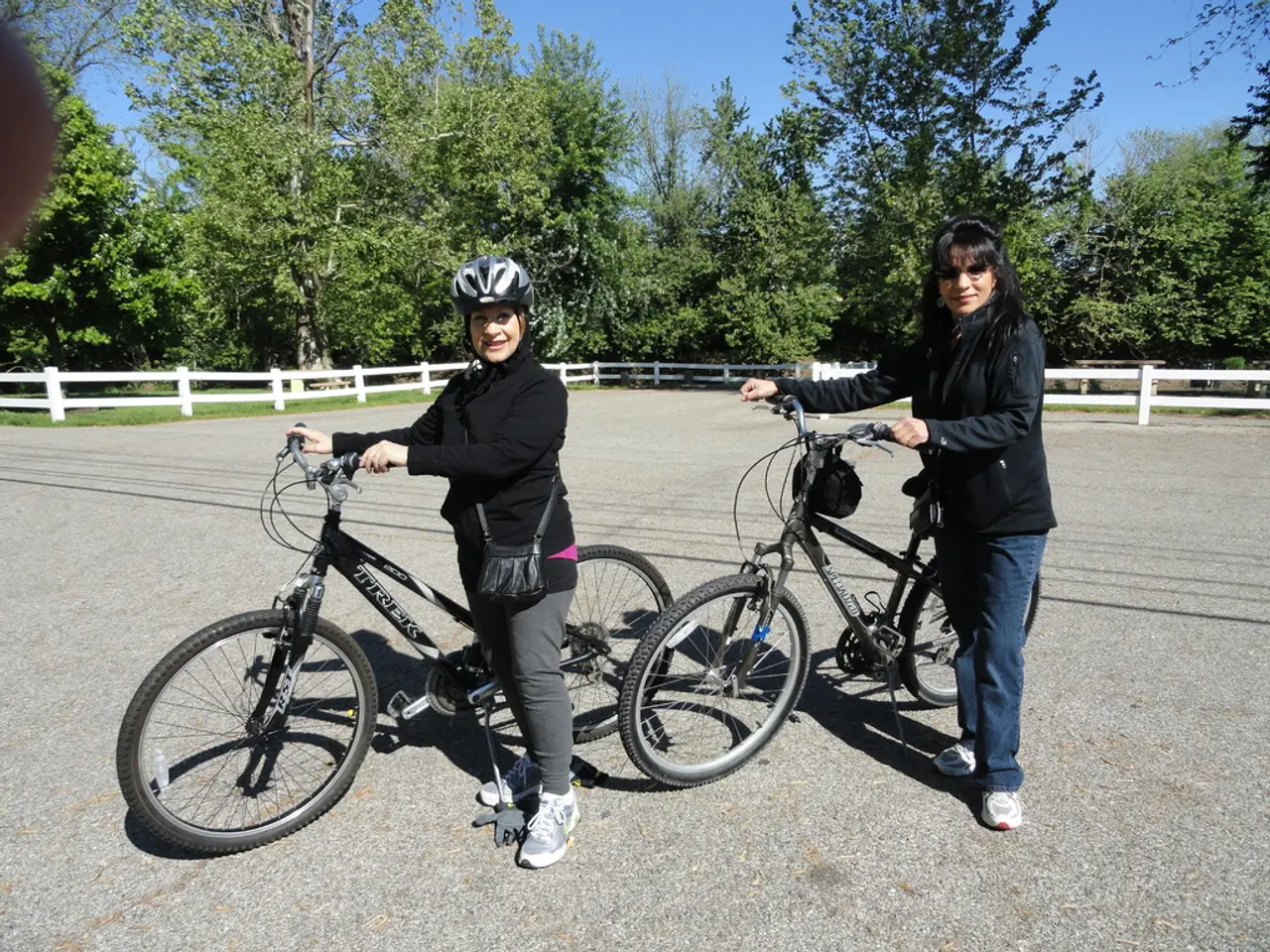Indigenous Females Pioneering Climate Change Mitigation Strategies
In the heart of Africa, two remarkable individuals are making a lasting impact on their communities by addressing climate change and promoting sustainable practices. Namongin Alice, from the Ik community in Uganda, and Sabou Doumbia, from Mali, are inspiring change through their respective projects, "Nurture Nature" and "The Protégeons Nos Terres et Nos Futurs Autochtones Bambara - Siby."
Alice's "Nurture Nature" project empowers youth in the Karamoja subregion of Uganda. This comprehensive initiative raises climate change awareness, fosters sustainable agricultural practices, protects nature, and ensures inclusive representation, with a strong emphasis on gender equality and uplifting underrepresented voices. The project equips girls and women with the tools to speak up, build confidence, organize, and influence decisions affecting their future.
Through "Nurture Nature," over 50 students, 60% of whom were girls, received intensive training on climate change, sustainability, and community resilience. The Climate Change Rising Voices Club was launched at Ik Seed Secondary School, engaging young girls as environmental stewards and providing them a platform to lead climate education, advocacy, and action. Beyond the school, young mothers learned sustainable food cultivation, how to build energy-saving stoves, and their role in environmental protection.
Alice, a native of Puta village in Uganda's Ik community, has dedicated her academic and professional journey to research, advocacy, and sustainability, focusing on environmental and social challenges in her region. Her efforts extend beyond education, as she has launched advocacy efforts to demand greater accountability and protection of Indigenous lands from harmful mining practices.
Community dialogues facilitated by Alice's project highlight the environmental and social consequences of mineral extraction in the region, fostering intergenerational knowledge sharing and collective reflection on sustainable land stewardship.
Meanwhile, Sabou Doumbia's project, "The Protégeons Nos Terres et Nos Futurs Autochtones Bambara - Siby," aimed to raise climate change awareness among the Bambara community of Siby, particularly women. The project enhanced local women's understanding of the connection between climate change and environmental degradation, empowering them to emerge as community leaders, better equipped to defend their rights and mobilize for climate justice.
Sabou's work has been recognised through Ecobuild, and she organised the first-ever LCOY (Local Conference of Youth) in Mali. However, specific details about her climate change solutions or projects implemented in her community could not be found in the available search results.
Both Alice and Sabou's initiatives are shining examples of how empowering youth and women can lead to lasting change in the fight against climate change. Their dedication to promoting sustainable practices, gender equality, and uplifting underrepresented voices serves as an inspiration for communities across Africa and the world.
- Alice's project, "Nurture Nature," also encourages progress in the field of environmental science by educating students about climate change, sustainability, and community resilience.
- Sabou Doumbia's project focused on the health-and-wellness aspect of climate change by informing Bambara women about the connection between climate change and environmental degradation.
- As both Alice's and Sabou's initiatives have demonstrated, education-and-self-development plays a significant role in fostering personal growth and career development, particularly for girls and women in their respective communities.
- By championing sustainable practices, conservation of nature, and advocating for gender equality in the context of climate change, these individuals are making substantial contributions to environmental science and promoting a healthier planet for all.




